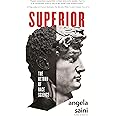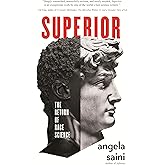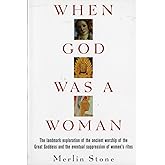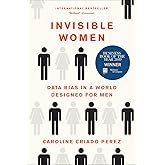
Amazon Prime Free Trial
FREE Delivery is available to Prime members. To join, select "Try Amazon Prime and start saving today with FREE Delivery" below the Add to Cart button and confirm your Prime free trial.
Amazon Prime members enjoy:- Cardmembers earn 5% Back at Amazon.com with a Prime Credit Card.
- Unlimited FREE Prime delivery
- Streaming of thousands of movies and TV shows with limited ads on Prime Video.
- A Kindle book to borrow for free each month - with no due dates
- Listen to over 2 million songs and hundreds of playlists
Important: Your credit card will NOT be charged when you start your free trial or if you cancel during the trial period. If you're happy with Amazon Prime, do nothing. At the end of the free trial, your membership will automatically upgrade to a monthly membership.
Buy new:
-35% $10.99$10.99
Ships from: Amazon.com Sold by: Amazon.com
Save with Used - Acceptable
$8.99$8.99
Ships from: Amazon Sold by: Jnwsk

Download the free Kindle app and start reading Kindle books instantly on your smartphone, tablet, or computer - no Kindle device required.
Read instantly on your browser with Kindle for Web.
Using your mobile phone camera - scan the code below and download the Kindle app.



 Audible sample
Audible sample Inferior: How Science Got Women Wrong-and the New Research That's Rewriting the Story Paperback – March 6, 2018
Purchase options and add-ons
For hundreds of years it was common sense: women were the inferior sex. Their bodies were weaker, their minds feebler, their role subservient. No less a scientist than Charles Darwin asserted that women were at a lower stage of evolution, and for decades, scientists—most of them male, of course—claimed to find evidence to support this.
Whether looking at intelligence or emotion, cognition or behavior, science has continued to tell us that men and women are fundamentally different. Biologists claim that women are better suited to raising families or are, more gently, uniquely empathetic. Men, on the other hand, continue to be described as excelling at tasks that require logic, spatial reasoning, and motor skills. But a huge wave of research is now revealing an alternative version of what we thought we knew. The new woman revealed by this scientific data is as strong, strategic, and smart as anyone else.
In Inferior, acclaimed science writer Angela Saini weaves together a fascinating—and sorely necessary—new science of women. As Saini takes readers on a journey to uncover science’s failure to understand women, she finds that we’re still living with the legacy of an establishment that’s just beginning to recover from centuries of entrenched exclusion and prejudice. Sexist assumptions are stubbornly persistent: even in recent years, researchers have insisted that women are choosy and monogamous while men are naturally promiscuous, or that the way men’s and women’s brains are wired confirms long-discredited gender stereotypes.
As Saini reveals, however, groundbreaking research is finally rediscovering women’s bodies and minds. Inferior investigates the gender wars in biology, psychology, and anthropology, and delves into cutting-edge scientific studies to uncover a fascinating new portrait of women’s brains, bodies, and role in human evolution.
- Print length224 pages
- LanguageEnglish
- PublisherBeacon Press
- Publication dateMarch 6, 2018
- Dimensions5.97 x 0.63 x 8.99 inches
- ISBN-100807010030
- ISBN-13978-0807010037
Book recommendations, author interviews, editors' picks, and more. Read it now
Frequently bought together

Customers who viewed this item also viewed
Editorial Reviews
Review
—Booklist
“The Enlightenment brought revolutions in science, philosophy and art while ushering in respect for human reason over religious faith. But the era also created a narrative about women—that they are intellectually inferior to men. Indeed, science itself is an establishment rooted in exclusion, writes science journalist Saini, citing a long history of unrecognized achievement by women scientists: Lise Meitner, Rosalind Franklin and Emmy Noether, to name a few. The process of science is also riddled with inherent biases that have done nothing to improve society’s views of women. Neurosexism, for example, is a term that describes scientific studies that fall back on gender stereotypes. New science and awareness are overturning a great deal of flawed thinking, as Saini shows, but there is still a long way to go.”
—Andrea Gawrylewski, Scientific American
“In this smart, balanced, and wonderfully readable book, Angela Saini breaks the vicious cycle by which women, having been excluded from the sciences by men who assumed them to be inferior, were judged by those same male scientists to be inferior. Study by study, she objectively reexamines what we think we know about the supposed differences between the sexes. If you have ever been shouted down by a male colleague who insists that science has proven women to be biologically inferior to men, here are the arguments you need to demonstrate that he doesn’t know what he is talking about.”
—Eileen Pollack, author of The Only Woman in the Room
“Angela Saini’s Inferior proves the opposite of its title. It is a lively, well-written, informed account of women’s proven powers. She shows that science, long used as a weapon against women, is today an ally in their steady advance. Inferior is another nail in the coffin of male supremacy.”
—Melvin Konner, author of Women After All
“This is an important book that I hope will be widely read. Any time biases are identified and corrected for, it is science and policymaking rather than feminism or any particular ideology that comes out ahead.”
—Sarah Blaffer Hrdy, author of The Woman That Never Evolved, Mother Nature, and Mothers and Others
About the Author
Product details
- Publisher : Beacon Press; Reprint edition (March 6, 2018)
- Language : English
- Paperback : 224 pages
- ISBN-10 : 0807010030
- ISBN-13 : 978-0807010037
- Item Weight : 1 pounds
- Dimensions : 5.97 x 0.63 x 8.99 inches
- Best Sellers Rank: #431,477 in Books (See Top 100 in Books)
- #877 in General Gender Studies
- #1,506 in History & Philosophy of Science (Books)
- #3,635 in Sociology Reference
- Customer Reviews:
About the author

Angela Saini is an award-winning British science journalist and broadcaster. Her work has appeared in National Geographic, New Scientist, Wired and The Sunday Times, and she regularly presents science programmes on the BBC. In 2020 she was named one of the world's top 50 thinkers by Prospect magazine, and in 2018 she was voted one of the most respected journalists in the UK. She has won honours from the Association of British Science Writers and the American Association for the Advancement of Science.
Angela has a a Masters degree in Engineering from Oxford University and was a fellow at the Massachusetts Institute of Technology.
To learn more please visit angelasaini.co.uk, where you can also sign up to her newsletter.
Customer reviews
Customer Reviews, including Product Star Ratings help customers to learn more about the product and decide whether it is the right product for them.
To calculate the overall star rating and percentage breakdown by star, we don’t use a simple average. Instead, our system considers things like how recent a review is and if the reviewer bought the item on Amazon. It also analyzed reviews to verify trustworthiness.
Learn more how customers reviews work on AmazonCustomers say
Customers find the book offers well-informed and satisfying answers to questions about gender identity. They find it a great compilation of current scientific knowledge, with interesting arguments worth studying. The book is well-written and educational, providing a good summary of the most important issues in biased science. Readers appreciate the balanced review of how science has explained issues.
AI-generated from the text of customer reviews
Customers find the book provides well-informed and satisfying answers to questions about gender identity. They appreciate its compilation of current scientific knowledge, especially studies focused on primatology. The book looks at the topic from multiple points of view and considers the history of science, particularly its increasing exclusion of women. The concepts are well-defined and elaborated upon, and the language used is clear.
"...to gender identity—and actually offers deeply well-informed and satisfying answers, all informed by balanced considerations of scientific findings..." Read more
"This book reviews the history of science, particularly its increasing exclusion of women as it became professionalized, and several major errors..." Read more
"This is a really great compilation of current scientific knowledge, specifically those studies focused on finding differences between the sexes...." Read more
"...In the end, this book contains many interesting arguments worth study but fails in being particularly persuasive...." Read more
Customers find the book easy to read and informative. They appreciate the well-researched content and author's skill in presenting compelling evidence. The book is described as an educational read that they would recommend.
"...All the while the author emphasizes delicately and methodically parsing apart the effects of the Western scientific field's deeply entrenched..." Read more
"...This is an excellent brief, readable summary of biased bad science directly relevant to social life and women's rights...." Read more
"Such a good book, I learned a lot. Extremely well written and important to read. Highly recommend it as well as Superior by Angela Saini." Read more
"...women psychology, women physiology, gender studies, this well-researched text presents compelling evidence that women are not inferior to men in..." Read more
Customers appreciate the book's pacing and balanced review of science. They find it a good review of Darwin's beliefs about women and an excellent survey of how objective science has been.
"Saini provides an excellent survey in how “objective” science has been used historically to provide “evidence” of the inferiority of women and how..." Read more
"...like it’s all about women in the description, but it is a very balanced review of how science has “explained” both men and women though history and..." Read more
"A good review on Darwin's beliefs about women..." Read more
Reviews with images
'Inferior' findings in line with Google Memo
Top reviews from the United States
There was a problem filtering reviews right now. Please try again later.
- Reviewed in the United States on May 11, 2021Tackles long-standing unknowns with regard to nature vs. nurture as it pertains to gender identity—and actually offers deeply well-informed and satisfying answers, all informed by balanced considerations of scientific findings on the issue. All the while the author emphasizes delicately and methodically parsing apart the effects of the Western scientific field's deeply entrenched historical biases regarding gender roles so as to highlight how this has functioned to perpetuate / reaffirm pre-existing socio-cultural beliefs about gender—which, basically, are often in turn reinforced through this shakey scientific knowledge in society and culture. The book aims to walk back on all of that while also bringing to light these shortcomings—and from there, it carefully walks back forward to consider the latest findings about gender arrived at via empirical evidence / deduced by way of proper execution of scientific method.
- Reviewed in the United States on September 30, 2019This book reviews the history of science, particularly its increasing exclusion of women as it became professionalized, and several major errors promulgated by male-dominated science and how they have been debunked in the modern era. Examples include the ideas that women are mentally inferior to men, either for unspecified reasons or because their brains were smaller, and that women are naturally sedentary, passive and submissive, and monogamous. This is an excellent brief, readable summary of biased bad science directly relevant to social life and women's rights.
There's not as much coverage of less directly harmful areas of science that have been skewed by male bias. For example, there's a brief mention of a past attitude that the "passive egg, active sperm" model represented natural behavior of the humans who produced those gametes. However, that model isn't even true; male scientists avoided admitting that the egg-sperm interaction involves (gasp) receptors on the sperm. The improvement in primatology due to the entrance of women into the field is covered; I suspect that the same is true for other areas of zoology that weren't covered. This book certainly covers the major types of pseudoscience that were - and often still are - directly used against women; a complete catalog of how gender (and perhaps also racial) exclusivity in all sciences may have reduced their historical quality would take multiple large volumes.
- Reviewed in the United States on September 30, 2017This is a really great compilation of current scientific knowledge, specifically those studies focused on finding differences between the sexes. I really liked the way the author not only talks about current science and societal efforts to use this science as a way to keep women 'in their place,' but also the way she shows how this has been done throughout recorded history. I thought this really brought home how science, among many other levers in society, has been used to try to keep women in an inferior position relative to men. I recommend this book to anyone, especially women tired of hearing worn out platitudes that have been used for generations as an excuse as to why they can't get ahead or shouldn't participate in public life.
- Reviewed in the United States on November 9, 2023Such a good book, I learned a lot. Extremely well written and important to read. Highly recommend it as well as Superior by Angela Saini.
 5.0 out of 5 stars Amazing book, extremely relevant read (sadly)Such a good book, I learned a lot. Extremely well written and important to read. Highly recommend it as well as Superior by Angela Saini.
5.0 out of 5 stars Amazing book, extremely relevant read (sadly)Such a good book, I learned a lot. Extremely well written and important to read. Highly recommend it as well as Superior by Angela Saini.
Reviewed in the United States on November 9, 2023
Images in this review

- Reviewed in the United States on February 19, 2018Unfocused and poorly edited, this book spends far more time providing examples of how Western cultures get woman wrong and not nearly enough time examining how the scientific community got women wrong.
The author and her editors should have studied The Nurture Assumption and its sequel to gain insight on how to tackle cultural beliefs and debunk bad science. For example, the examination of the Baron-Cohen study of infants staring at faces or mechanical objects could have been a succinct example of really bad science that has influenced other scientists, the media, and the general public. Instead, the authors wanders about for page after page before examining the study’s design flaws and the inability of other scientists to reproduce its results. Similarly, the author could have spent more time and been far more effective on the plasticity of our brains - on how culture itself, by encouraging boys to play with mechanical objects and girls to play with dolls, may in fact create quantifiable differences between the sexes, in spacial orientation tests and verbal interaction levels for example. In such cases, the science is probably getting it wrong because researchers are mistaking causation - outcomes are different because of training, not underlying structural differences in the brains of men and women. In the end, this book contains many interesting arguments worth study but fails in being particularly persuasive.
Yes, scientists, being bound by their own cultural straitjackets, get lots of stuff wrong, especially in the social sciences, but over time the scientific method will correct these errors. This book is a step in that direction, but just a small one.
- Reviewed in the United States on February 6, 2018Saini provides an excellent survey in how “objective” science has been used historically to provide “evidence” of the inferiority of women and how it continues to be used to “prove” gender differences. From primate social structures to fMRIs, Saini details the ways what we choose to research, how we interpret data, and which results receive attention and funding are often as influential in the conclusions as any data collected. A great primer in gender biases in scientific research and a concise rebuttal of biological essentialism, with some of the history of the women who have fought to be treated equally by science for centuries.
Top reviews from other countries
-
 VictoriaReviewed in Germany on January 4, 2025
VictoriaReviewed in Germany on January 4, 20255.0 out of 5 stars Super!
Für jede Mann und Frau eine Empfehlung!
-
 NicolasReviewed in France on February 3, 2024
NicolasReviewed in France on February 3, 20245.0 out of 5 stars Révolutionnaire
A lire de toute urgence pour comprendre comment même la science peut être sexiste. Le tout extrêmement bien documenté et avec toujours de la place pour les théories « adverses »
 Amazon CustomerReviewed in Canada on February 28, 2019
Amazon CustomerReviewed in Canada on February 28, 20195.0 out of 5 stars Ability with Math and Sciences does not diminish femininity!
With a background in science, I liked the reference to many women scientists. Well supported. Women have always been under more scrutiny. It is challenging to have your voice heard in a world where men's opinions/words have historically been given more credibility. I like the concept that our brains, whether male or female is fluid, and that we are greatly influenced by social/cultural experiences. Highly recommend this read. Please introduce to girls of 12, 13 years of age. Science and mathematics provide a sound foundation for more career opportunities. Girls are just as capable as boys to do well with mathematics.
-
 Cliente AmazonReviewed in Brazil on January 4, 2019
Cliente AmazonReviewed in Brazil on January 4, 20195.0 out of 5 stars Feminismo científico
Um excelente livro sobre feminismo e ciência. Muito bem escrito e com informações relevantes.
 Amazonian CustomerReviewed in the United Kingdom on July 5, 2020
Amazonian CustomerReviewed in the United Kingdom on July 5, 20205.0 out of 5 stars Sadly a necessary and important read
Inferior is a very readable and thoroughly researched account of how science has ignored, excluded and misinterpreted women over the years.
Whether it is the product of unconscious bias or the assumption that women's behaviour is not fundamentally affected by the patriarchal societies we live in, often the finest minds in science have simply got us wrong.
Angela Saini tears these preconceptions about gender apart and as well as documenting the history of science that incorrectly judged women to be inferior, she also looks at some of the modern research that is setting the story straight.
In the 21st century it seems insane that a book like this should be necessary, let alone required reading, but it is.













